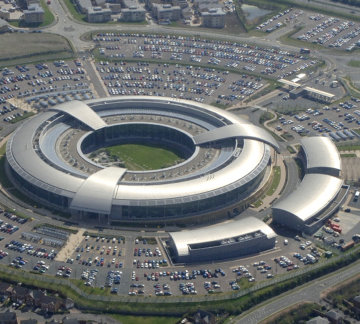- About
- Topics
- Picks
- Audio
- Story
- In-Depth
- Opinion
- News
- Donate
- Signup for our newsletterOur Editors' Best Picks.Send
Read, Debate: Engage.
| located: | United Kingdom, USA, Russia |
|---|---|
| editor: | Gurmeet Singh |
Five years ago Edward Snowden revealed that multiple intelligence agencies were intercepting and storing vast quantities of private user data. This data was even collected from everyday people of no intelligence interest. These revelations not only led to Snowden’s exile from the U.S. to Russia but also led to several legal challenges raised against these intelligence agencies.
One such challenge was raised by the organisations Amnesty International, Liberty, Privacy International and Big Brother Watch in the European Court of Human Rights (ECHR) against GCHQ, the U.K.’s intelligence service, which focuses on communications.
The ECHR found that GCHQ’s methods for bulk interception of online communications violated the rights of people, by violating their privacy. It also found that GCHQ failed to provide sufficient surveillance safeguards while collecting this data.
However, the court did not find that GCHQ’s sharing of digital intelligence with other foreign governments was a crime, and the court confirmed that bulk interception with tighter safeguards would be permissible.
In effect, the ruling vindicates Edward Snowden and activists who have for years fought against blanket data collection by governments, as well as the indifference of a populace that often does not see what the big problem is. By being vindicated in an international court, Snowden and other activists have a solid legal and cultural grounding from which to push for further safeguards in data interception.
The days of total online privacy are long gone. There’s no turning back the clock on intelligence agencies collecting our data, nor can we wish away social media giants from monitoring our online behaviour. However, with this ruling, activists for privacy can be emboldened. As Lucy Claridge, of Amnesty International, said, “Today’s ruling represents a significant step forward in the protection of privacy and freedom of expression worldwide. It sends a strong message to the UK government that its use of extensive surveillance powers is abusive and runs against the very principles that it claims to be defending.”
Image: GCHQ Cheltenham / GCHQ
